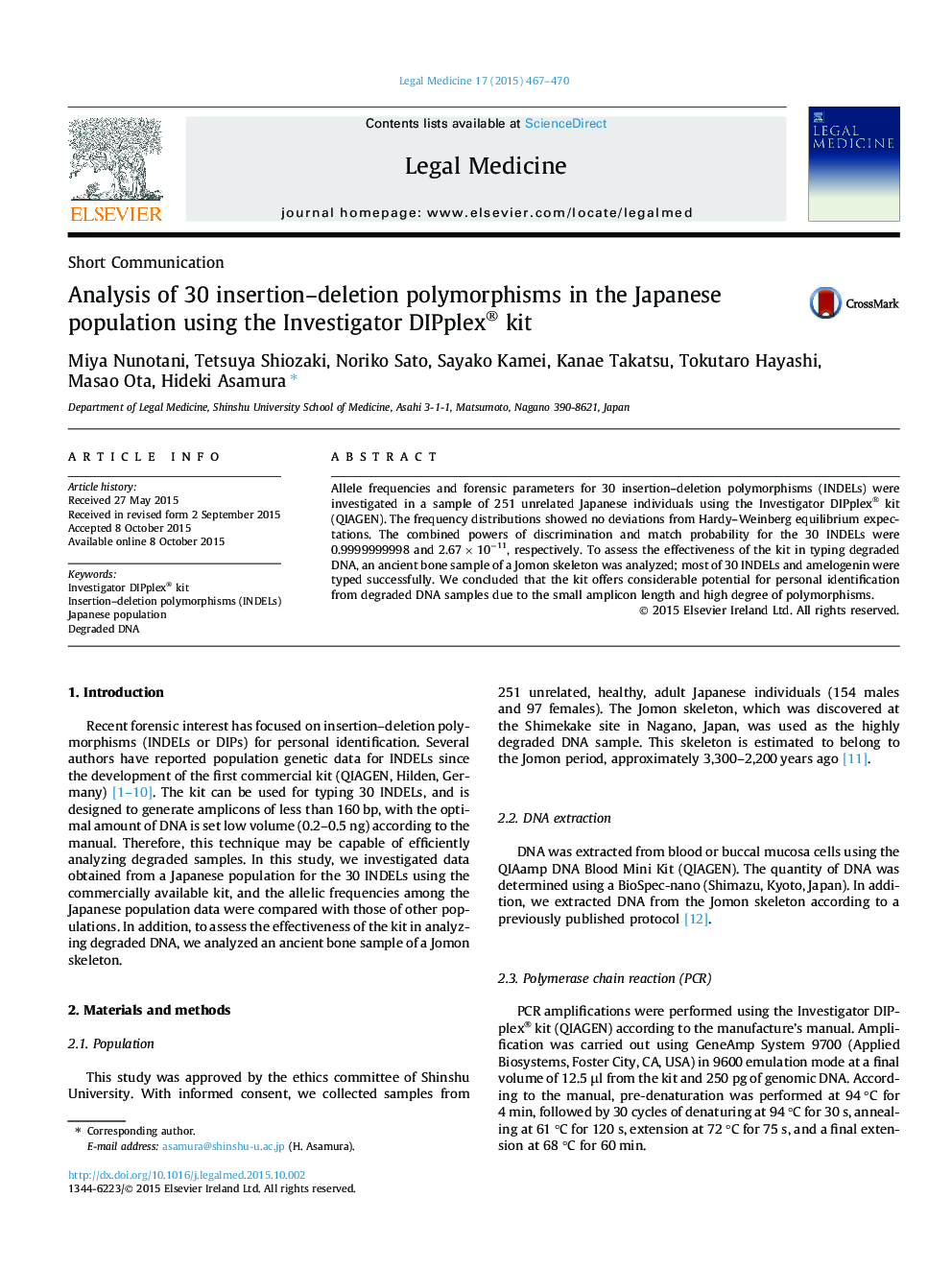| کد مقاله | کد نشریه | سال انتشار | مقاله انگلیسی | نسخه تمام متن |
|---|---|---|---|---|
| 103468 | 161382 | 2015 | 4 صفحه PDF | دانلود رایگان |
• Analysis of INDELs in Japanese population by Investigator DIPplex kit was performed.
• This system must be useful for personal identity in Japanese subjects.
• This system may be useful for the analysis of the degrade DNA samples.
Allele frequencies and forensic parameters for 30 insertion–deletion polymorphisms (INDELs) were investigated in a sample of 251 unrelated Japanese individuals using the Investigator DIPplex® kit (QIAGEN). The frequency distributions showed no deviations from Hardy–Weinberg equilibrium expectations. The combined powers of discrimination and match probability for the 30 INDELs were 0.9999999998 and 2.67 × 10−11, respectively. To assess the effectiveness of the kit in typing degraded DNA, an ancient bone sample of a Jomon skeleton was analyzed; most of 30 INDELs and amelogenin were typed successfully. We concluded that the kit offers considerable potential for personal identification from degraded DNA samples due to the small amplicon length and high degree of polymorphisms.
Journal: Legal Medicine - Volume 17, Issue 6, November 2015, Pages 467–470
